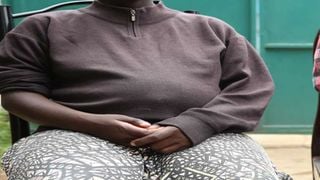
Pregnant adolescent girls. The Coast region is recording a high number of teen pregnancy cases.
| File | Nation Media GroupCounties
Premium
Coast experiences steep rise in teen pregnancies
The number of teenage pregnancies has dramatically increased in Kilifi and Kwale counties even as local authorities channel resources to tackle the problem.
Latest statistics and anecdotal evidence from healthcare workers show thousands of adolescents are out of school despite efforts to end harmful traditional practices that fuel pregnancies.
So bad is the situation that there are even cases of girls dropping out of school at Grade Two due to pregnancy, while many others have been married off to avoid shame.
In one primary school, nine pregnancies were reported after the long school break caused by the Covid-19 pandemic.
Biting poverty
In Kilifi, 4,271 adolescent girl pregnancies have been reported in the last eight months, compared to 6,928 cases last year. Health experts say the figure could be higher as many pregnant teens don’t visit clinics.
The menace has been blamed on biting poverty, conservative culture and lack of sexual and reproductive health services.
Kwale County Director of Education Martin Cheruiyot said that due to polygamy, many children are raised by their grandparents, who cannot provide for them.
“People sire children and leave them. They are left with grandparents who can barely provide anything for them.
“This leaves the girls in the hands of strangers who provide the basic needs then demand sex. These are the majority in the reported cases,” he said.
Teenage pregnancies
Between 2017 and 2018, Kilifi was in the limelight after recording over 20, 000 teenage pregnancies. It had the highest teen rates at 22 per cent, higher than the region’s 21 per cent and way above Kenya’s average of 18 per cent.
Although the cases reduced from 30 per cent in 2018 to 14.5 per cent last year, the sudden rise in numbers this year has baffled health officials.
Kilifi Governor Amason Kingi recently formed a task force to inquire into the cause of the growing problem.
In Kwale, Samburu and Kinango sub-counties have the highest number of pregnant schoolgirls. In one secondary school in Kinango, 15 cases were reported in February, two of them national exam candidates.
The sub-county had 37 pregnant high school girls in total.
In primary schools, out of 63 reported cases, each of the 37 institutions had at least two cases aged between 13 and 19. Most of the pupils are in Standard Seven and Eight, with one 13-year-old in Grade Two.
Covid-19 break
In Lunga Lunga Sub-county, nine girls were reported pregnant after the long Covid-19 break in one school, while 11 others were either at home or in class in different institutions. In primary, 74 girls were pregnant, out of which eight had been married off, some were in school and 30 could not be accounted for.
Data from the Ministry of Education offices in Kwale shows that learners between 13 and 19 years of age become mothers while in school, most of them in primary.
Some cases are reported quickly, while others take a while before the school administration or local authorities know about them.
In a recent case, a 13-year-old Standard Eight girl in Msambweni was impregnated by a neighbour and the parents only reported to the police when she was six months pregnant.
Such cases usually increase during school holidays, especially last year when schools closed for more than eight months.
Reports by Farhiya Hussein, Siago Cece and Maureen Ongala





